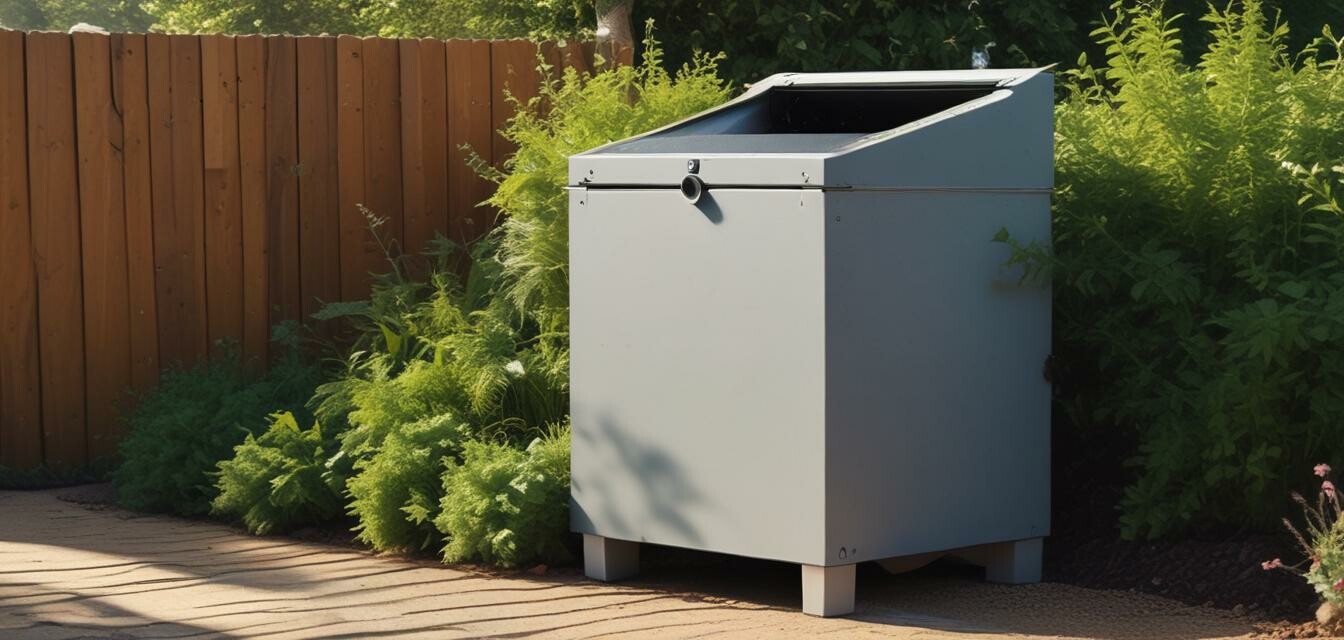
Must-Have Features in Modern Composters
Key Takeaways
- Modern composters should offer durability and efficiency.
- Look for user-friendly designs that simplify composting processes.
- Temperature control and aeration features enhance composting speed.
- Consider the size and capacity based on your composting needs.
- Smart technology integration can optimize performance.
Composting has gained popularity among eco-friendly homeowners, making it essential to understand the must-have features of modern composters. These innovative solutions not only support waste management but also enhance the gardening experience. In this article, we'll explore the key features you should consider when selecting a modern composter for your home.
Why Choose a Modern Composter?
Modern composters come equipped with advanced features that make composting easier and more efficient than traditional methods. These include:
- Improved airflow systems
- Faster decomposition processes
- User-friendly designs
- Durable materials
- Integration with smart technology
Essential Features of Modern Composters
As we delve deeper into the features of composters, here are some key elements you should look out for:
1. Durable Materials
Modern composters are often made from high-quality materials like recycled plastic or stainless steel. These materials resist rust, decay and the elements, ensuring your composter lasts longer.
2. Efficient Aeration
Aeration is crucial for the rapid breakdown of organic materials. When choosing a composter, look for features like:
- Air vents for optimal airflow
- Rotating tumbler designs for mixing
- Smart fan systems
3. Size and Capacity
The size of your composter should be based on your household's composting requirements. If you generate a lot of kitchen scraps, consider:
| Composter Size | Capacity | Best for |
|---|---|---|
| Small | Up to 5 gallons | Small households or apartments |
| Medium | 5-15 gallons | Average families |
| Large | 15+ gallons | Gardens and larger families |
4. Temperature Control
Temperature plays a vital role in the composting process. Consider composters with insulated walls or heating elements to maintain optimal temperatures for decomposition.
5. Easy Access and Maintenance
Modern composters should be user-friendly. Features that facilitate easy access include:
- Accessible doors or openings
- Compost removal mechanisms
- Odor control systems
6. Smart Technology
Smart composters are becoming increasingly popular. They may include features like:
- Mobile app integration
- Monitoring systems for moisture and temperature
- Bluetooth or Wi-Fi capabilities
For more information on smart composters, check our Smart Composters page.
Pros
- Quicker composting times
- Less manual labor required
- Eco-friendly materials
- Convenient for small spaces
Cons
- Higher initial investment
- Potential learning curve with smart features
Choosing the Right Composter for You
When selecting a modern composter, evaluate your composting needs and how much waste you typically produce. It’s also essential to consider the space available for the composter. Explore different types like compost tumblers and worm bins to find the best match.
Conclusion
In summary, the best modern composters feature durable materials, efficient aeration systems, appropriate sizes, temperature control, ease of use, and smart technology. By understanding these key features, you can make an informed decision that suits your composting lifestyle and contributes to a sustainable environment!
Beginner's Tips for Successful Composting
- Start with a balanced mix of green and brown materials.
- Monitor your compost regularly for moisture and aeration.
- Don’t overload your composter; ensure it has enough space to breathe.
- Be patient; good compost takes time to develop.
Further Reading
To get more insights into composting techniques, visit our comprehensive guides in the Buying Guides section. For the latest updates and trends in the composting world, check out our Compsting Trends blog. Stay informed and compost smarter!